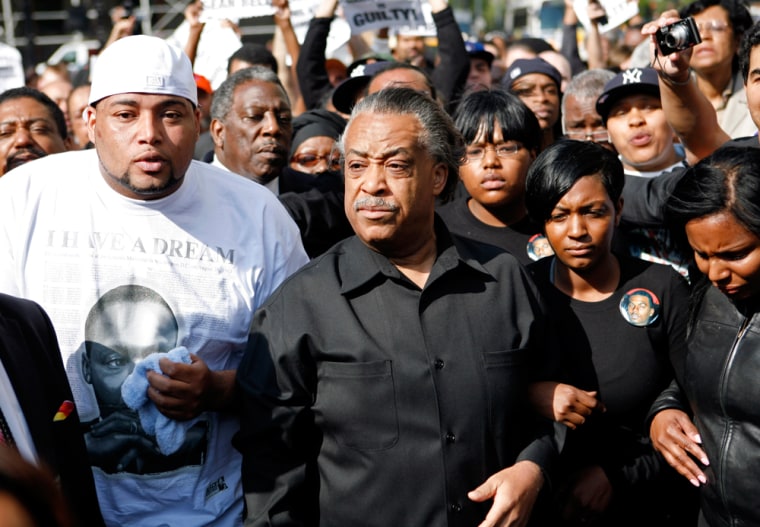Civil rights activist the Rev. Al Sharpton rejected a plea offer Monday and will go to trial in September on a disorderly conduct charge related to demonstrations over the fatal shooting of an unarmed black man by police on the man's wedding day.
Sharpton declined to plead guilty in exchange for time served. He was held for 5 1/2 hours on May 7 after he and scores of others were arrested for blocking intersections to protest the acquittals of three officers in the Sean Bell shooting.
He said outside court Monday that the plea offer was unfair and that the charges against him and others should be dropped.
A judge offered to drop charges against Trent Benefield and Joseph Guzman, friends of Bell who were wounded in the Nov. 25, 2006, shooting, provided they stay out of trouble for six months. Bell was killed in a hail of 50 police bullets as he left his bachelor party at a Queens topless bar.
Sharpton said his decision to go to trial was "a matter of law, not just a matter of principle."
He said that although all the defendants were arrested for doing the same thing, those who had records of civil rights activism were "singled out" and weren't given the opportunity to have their cases adjourned.
Barbara Thompson, spokeswoman for the Manhattan district attorney, said officials in her office "looked at each case individually."
Manhattan Criminal Court Judge Neil Ross scheduled a trial for Sharpton and about 10 others on Sept. 10.
